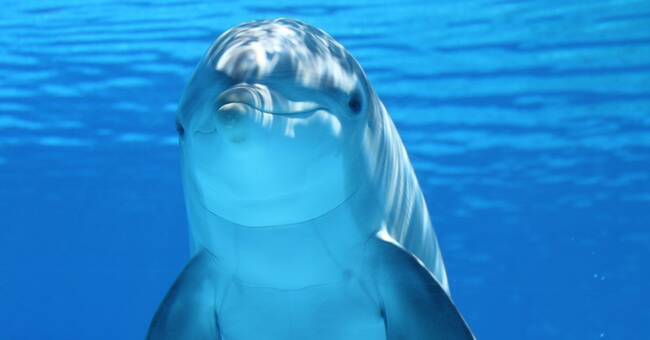Just as we humans can control how fast we breathe, so dolphins can control how fast their heart beats.
This is shown by researchers in a new study published in Frontiers in Physiology.
Before descending into the oceans, they actively slow down their heartbeat.
They can even adjust their heart rate depending on how far they plan to dive.
Their slower heart rate means that they save on oxygen and the dolphins avoid pressure sickness, or the so-called diving illness.
To find out, the researchers enlisted the help of three bottlenose dolphins.
The animals were trained to hold their breath underwater during different time intervals following instructions.
The dolphins then had ECG sensors attached to their breasts.
The coaches gave the signal
When the coaches gave a signal that they would hold their breath, the heart rate dropped just before the dive.
The researchers could also see that the dolphins' heart rate dropped even more when they planned to hold their breath during a longer dive, compared to shorter dives.
The results show that dolphins and probably also other marine mammals deliberately change their heart rate depending on how long they plan to dive.
That knowledge is important because noise in the oceans created by humans puts that function out of play.
If something unpredictable happens during the dive, such as it being hissing down in the sea, then the animals are stressed and they cannot control their pulse in the same way, which can lead to them getting diving sick.
Military exercises kill beaked whales
An example of this is the deep-diving beaked whale that regularly swims 1000 meters into the sea.
In connection with military exercises when so-called sonar or sonar are sent out to find submarines, beaked whales have been found stranded with injuries similar to diving disease.
The beaked whales have, among other things, had bleeding ears.
- It has not been understood how a diving choice could have developed the diving disease.
And now we have a reasonable explanation for that.
And that means that you now know that you must avoid exposing beaked whales to this impact, says Mats Amundin, senior zoological advisor and researcher at Kolmården Zoo.
Either the beaked whales must be rejected before the military exercises begin or they must wait until they have left the area, or alternatively choose another place, Mats Amundin believes.
Sudden noise most dangerous
One way to get around the problem is that the sound level from the sonar is slowly built up so that the animals are not frightened in the same way, says Andreas Fahlman, researcher in marine biology and lead author of the study.
He now hopes that knowledge can increase awareness of how noise harms marine mammals.
- If the ability to adjust the heart rate is important to avoid diving disease and sudden noise puts this mechanism out of play, then we must work to reduce noise so as not to create unnecessary stress for the animals, he says.

